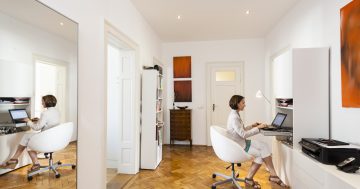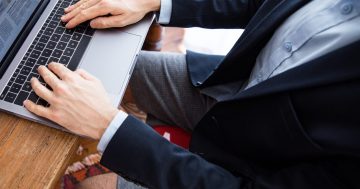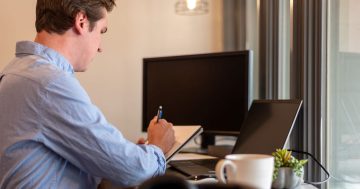Cameron Micallef* has come across a movement that would see employees who continue to work from home after the pandemic taxed for the privilege.
 A report commissioned by Deutsche Bank suggests that those who can remain working from home should pay five per cent tax each day they choose to work remotely.
A report commissioned by Deutsche Bank suggests that those who can remain working from home should pay five per cent tax each day they choose to work remotely.
They argue it would leave the average employee no worse off due to saving money on commuting, going to lunch and purchasing clothing, with the taxes being used to help lower-paid employees.
This is despite people working from home using their own electricity and other essentials when turning a home into an office.
The bank says a privilege tax could generate $49 billion in the USA to help the less fortunate.
“Working from home will be part of the ‘new normal’ well after the pandemic has passed. We argue that remote workers should pay a tax for the privilege,” global head of fundamental credit strategy and thematic research at Deutsche Bank Jim Reid said.
“Our calculations suggest the amounts raised could fund material income subsidies for low-income earners who are unable to work remotely and thus assume more ‘old economy’ and health risks.”
The report found that working from home is not a new phenomenon. However, COVID-19 has “turbocharged” the switch from the office to the home.
“During the pandemic, the proportion of Americans who worked from home increased tenfold to 56 per cent. In the UK, there was a sevenfold increase to 47 per cent,” the report said.
“Many of these people will continue to work remotely for some time. Indeed, two-thirds of organisations say that at least three-quarters of their staff can work from home effectively, according to S&P Global Markets.”
Based on Australian gross average annual full-time salary of $48,360, an Australian who chooses to work from home would have to pay $2,418 a year for the privilege.
*Cameron Micallef is a journalist for Momentum Media’s nestegg and Smart Property Investment. He gives Aussie readers practical financial tips to help grow their wealth and achieve financial independence. He can be contacted at www.nestegg.com.au/author/cmicallef.
This article first appeared on www.nestegg.com.au











